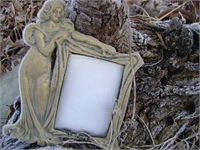
Reviving the Poet within Us All
Important Notice: Our web hosting provider recently started charging us for additional visits, which was unexpected. In response, we're seeking donations. Depending on the situation, we may explore different monetization options for our Community and Expert Contributors. It's crucial to provide more returns for their expertise and offer more Expert Validated Answers or AI Validated Answers. Learn more about our hosting issue here.

Reviving the Poet within Us All
You must be logged in to post a comment.
Sainte-Beuve said, “In most men there exists a poet who died young, whom the man survived.” To bring that poet alive, a person need only revive or rediscover a love of words that once lived inside him or her.
Wordplay exercises that do not emphasize a perfect final product are one way to start the search for that inner poet. Professional writers love words and thus made them their business; however, even hobby writers can have as much fun with them – and who knows where that growing love might take them?
Naming Exercise
Names are powerful. They influence our perception. Confucius believed all wisdom came from learning to call things by the right name. Complete the lines below to make a poem or just work with the ideas below, no matter what form the images take.
My real name is
On some days my name is
My ideal name is
In my dream my name was
My husband, mother, son, boss (etc.) thinks my name is
Simile Exercise
People naturally see things metaphorically. But sometimes a metaphor is difficult to come up with in the conventional way – by picking an object and trying to compare it to something. The result is often a cliché. Instead, start with a descriptive phrase of anything.
For example, here is a descriptive phrase: “polished ebony of a Sharpie lid.”
Now, find something that you can compare this to: “My headache feels like the polished ebony of a Sharpie lid.”
Metaphors are not rational – that is why they are metaphors instead of definitions. They evoke an image through sensory language; therefore, concentrate on using concrete language in the descriptive phrase you start with. Focus on detail, not making sense. Do as many of these as you can.
A & Q
This is a fun exercise to do with a group of people, but you can also do it on your own – it just takes more time. If you have a group, have everyone write a statement on a slip of paper. It can be any kind of statement but the more specific it is, the better it will probably be. Put all the statements together in a bowl. Next, ask everyone to write a question about anything. Put these in a separate bowl. Now, have people take turns drawing out a question, reading it aloud, and then drawing a statement (an answer) and reading that with the question.
Not only can this be a fun activity, it can also be surprising how answers magically go with questions. For more writing, the question and answer can be developed into a longer piece. If you are doing this activity on your own, you could write a series of statements and leave them somewhere. Wait for several days so that you will have forgotten them (if possible!) and then start writing questions. You can then match them up and do any kind of freewriting you want from the results.
The Center
Pick an object, place, or idea you would like to explore. Now, imagine yourself in the center of that thing. Let your rational mind go and find yourself in the center of . . . a volcano, Victorian England, a computer monitor, a moth-eaten book, a roll of tape. The possibilities are endless. What is it like in the center?
In the center of the _____________,
I see
I hear
I smell
I feel
I taste
I (whatever you do)
Percy Bysshe Shelley famously said that “Poets are the unacknowledged legislators of the world.” Anyone can exercise a little control over the world when they have fun with the words that shape it.